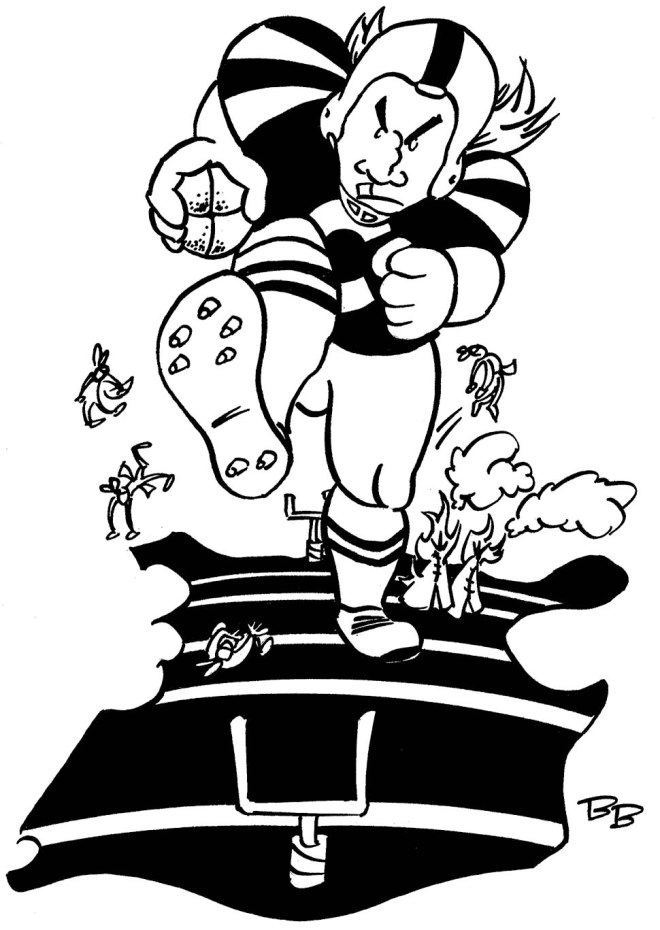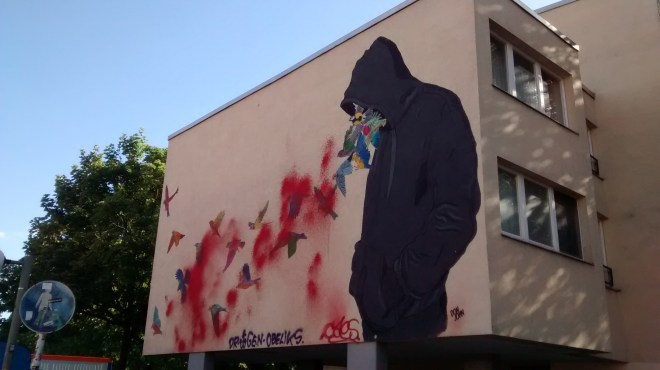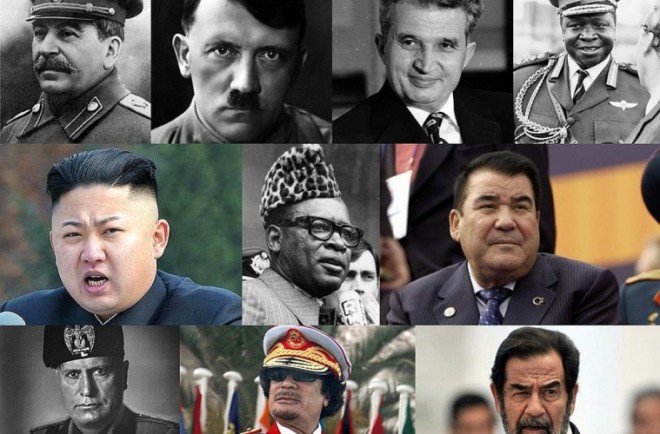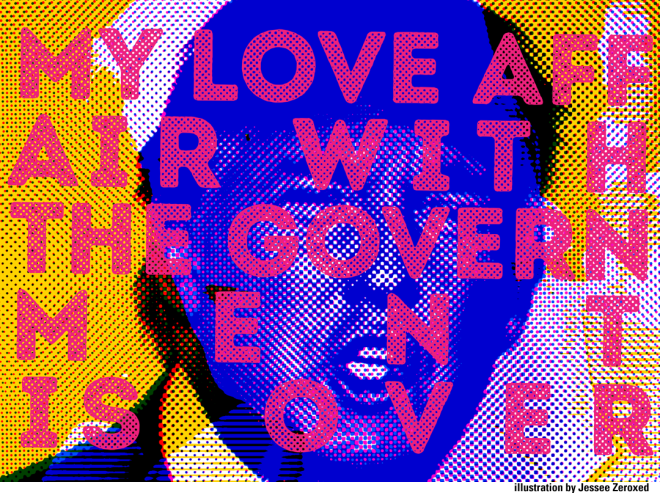Here’s a column that I wrote for Razorcake in 2007 (issue #42). The second half of it is satire about Daniel Snyder changing the Washington football team’s nickname to the Crackers. Yesterday, thirteen years after I wrote this, he finally did agree to change the name. He hasn’t yet announced what the new name will be. I hope he doesn’t use the name I suggest in this column, but I had fun writing about it way back when. I’m glad he finally agreed to change the name. I hope the owners of the Cleveland and Atlanta professional baseball teams do the same.

illustration by Brad Beshaw
If You’re the Owner of the Washington Redskins, You’re No Longer a Cock
It’s been six or seven years now since I first heard the Atom and His Package song “If You Own the Washington Redskins, You’re a Cock,” and it still flows through my mind again and again when Fall rolls around and my thoughts turn to football. Echoing the first lines of the song, I, too, like sports, so there are some things I force myself to miss. The biggest of these things that I try to ignore is the nickname of my favorite team: the Seminoles. Now, when I watch pro football, I’ll get into the game. I’ll root like hell for certain teams. I have favorites who I root for year after year. I get swept away in the action. But when the game is over, all those emotions fade pretty quickly. If the team I’m rooting for loses, I just shrug my shoulders and think, what the hell? It’s just a game played by millionaires.
It’s different with the Seminoles, because they’re the team that represents the college I got my bachelor’s from: Florida State University. I have great memories of those times at FSU. Those years opened my mind to whole new ways of thinking. The stuff I learned at FSU taught me how to escape the construction sites of my youth and move on to a lifestyle that’s more in line with my personality. Plus, college is the place where you can indulge in booze, drugs, and sex with random people—all with impunity. Good times. And FSU football seemed to float around in the atmosphere of those good times. So now I watch the games and it ties me to an earlier, fun part of my life and I get swept away. When they win, I’m totally stoked. And when they lose, it ruins my day. Or, at least, a few hours of it. Either way, I love watching the games.
Still, it bugs me that they’re nicknamed “The Seminoles.”
Last year, the governing body of college sports insisted that schools drop their Native American team nicknames. Most of the universities complied. In the case of FSU, the actual Seminole tribe stepped forward and defended Florida State. The Seminoles’ (the tribe) argument being that they liked that FSU was nicknamed after them and didn’t want the name changed. One official statement from the Seminole tribe stated that the tribe should judge whether or not the nickname was offensive, and that stripping Florida State of the nickname would be one more example of white people deciding what’s best for the Native Americans.
Okay. Fair enough. I’ll be one white guy staying out of it. Mostly.
Because there is one other thing. In January, 2001, FSU played in the Orange Bowl for the national championship against the University of Oklahoma. Oklahoma whipped Florida State 13-2. It was a brutal, punishing game. Florida State couldn’t mount any offense. Oklahoma controlled the field. In the end, there was no doubt who the national champions were.
Later that month, I drove through Oklahoma, through the northern part of the state where the Seminole reservation still stands. As I rode along the interstate, I thought of the history of Oklahoma, how it was the territory that the United States gave to Native Americans during the nineteenth century. Then, president Benjamin Harrison decided that he wanted Oklahoma for white people and opened it up for US settlers. On March 2, 1889, any white American homesteader who wanted to could race into Native American lands and claim it for their own. By the time that the homesteaders raced in, though, more than half the land had already been claimed by tougher, meaner white Americans who had gone into Oklahoma early (and illegally) and claimed their land. These homesteaders who jumped the gun on taking all the Native American land and claiming it for themselves were called Sooners. Many years later, the University of Oklahoma nicknamed their football team the Sooners, after the very people who raced onto the Seminole reservation and claimed the land for themselves.
I thought of the battle between the Seminoles and Sooners again, in a new, historical context. It was a brutal, punishing affair. The Seminoles couldn’t mount any offense. The Sooners controlled the field. In the end, there was no doubt who the national champions were.
That’s kinda fucked up.
I notice these types of dual meanings around Native American nicknamed teams and athletic competitions all the time. This October in Major League Baseball, the Yankees and the Indians faced off in the playoffs. The Yankees have long dominated our national pastime. The Indians won this October. They didn’t end up making it to the World Series, though. So once again, the Indians won a battle but lost the war. In fact, the Indians haven’t won the championship since 1917. The Yankees have won it twenty-six times since then.
So I notice these things and get a little bothered when the Yankees and the Indians battle for supremacy in the national pastime, or when the Sooners wipe out the Seminoles in a ground-acquisition game and thereby are crowned national champions. I guess I’m not the only one who notices, though.
On October 28, 2007, the New England Patriots battled the Washington Redskins in professional football. Not only did the Redskins lose, but the Patriots slaughtered the Redskins. The game stirred up quite a bit of controversy in the sports media because the Patriots, once they had clearly won, decided to stay on the offensive and run up the score. They wiped the Redskins out. The Redskins hadn’t been treated this brutally, hadn’t been beaten this badly since 1961.
It was too much for the Daniel Snyder, the owner of the Redskins. The double entendres started to get to him. It was one thing to have a team nickname that is the racist term used by the aggressors in one of the largest genocides in human history. It was another thing to use that nickname in Washington, DC, the capitol city of the government that committed the genocide. But when a team named after the aggressors—the Patriots—and coming from the seat of European colonization in North America—New England—wipes out your ethnic-slur-nicknamed team, it’s too much. Snyder couldn’t take it.
I’m sure you’ve heard about what happened next. It’s been in the news for a couple of months, now. Anderson Cooper did a four-part special on it in November. For weeks, Bill O’Reilly has geared his talking points against the “PC Police” behind Snyder’s act. Apparently, Rush Limbaugh won’t shut up about it. Even President Bush got involved, but we’ll talk about that later. In case you missed all of this, though, I’ll tell you the two controversial things that Snyder did.
First, he decided to change the name of the Redskins.
This may not sound like such a big deal. The University of Hawaii changed their nickname from the Rainbows to the Warriors in the nineties. They never said why they made this change, only claiming that they’d always been “the Rainbow Warriors” and they were just focusing on the second part of the nickname more these days. It’s pretty clear, though, that they’ve shied away from the Rainbows because it was, well, too gay. The city of Washington, DC, has a history of changing their team nicknames, too. The Washington Bullets became the Wizards because a city that frequently had the highest per-capita murder rate was uncomfortable with a team nicknamed after the agent of death. Even the NFL is no stranger to name changes. In 1998, the Tennessee Oilers became the Tennessee Titans because fans wanted a new nickname. So if teams can ditch nicknames for being too gay, too violent, or just too unrepresentative of Tennessee, then surely it shouldn’t cause a stir to change a nickname for being too racist.
But it did stir a lot of controversy. Perhaps part of the reason had to do with the idea of Political Correctness. Bill O’Reilly, in his many rants, asked where the line would be drawn. Would the Vikings have to change their nickname, lest they offend the Norwegian population of Minneapolis? Would Catholics mount an offensive against the New Orleans Saints? Daniel Snyder defended his decision on Bill O’Reilly’s show. Snyder explained that the line should be drawn at a genocide. The Vikings and Saints were okay, according to Snyder, because our government didn’t try to wipe them off the face of the earth. Our government did try to do that to the “Redskins.” “So that’s where I draw the line,” Snyder said. O’Reilly called Snyder a “language nazi” and insisted that the producer turn off Snyder’s microphone.
Fans were upset about the change, too. Apparently, they were endeared to the mascot. So endeared, that before the name change, the Redskins were the second most profitable NFL franchise, second only to the Cowboys. That’s right. The Cowboys and Redskins were the two most profitable logos. The rivalry between the Cowboys and Redskins has long been one of the most bitter rivals in all of pro sports. So when Snyder announced that they would no longer be using the image of the chief (or, really, the image of a tan, Italian-looking guy with feathers on his head) as their mascot, fans were irate. “What about the long, rich tradition of Redskin football?” they asked. Snyder answered this question on the Rush Limbaugh show, saying, “Maybe we shouldn’t embrace this tradition of racism.” Limbaugh responded with a rant that he apparently is still reverting back to when he has a free moment between bashing Hillary Clinton and trying to blur the name Obama with the name Osama.
The second thing Snyder did was even more surprising: he renamed the Redskins the Washington Crackers.
You’ve probably heard about this, too. You probably heard all the jokes about the new mascot looking just like George W. Bush with a mesh-back ball cap on. You’ve probably heard about Bush embracing the new mascot because at least it turns attention away from the fiasco of a war he’s running. Maybe you’ve read the New York Times editorial where they pointed out that “cracker” was originally a derogatory term used by slaves to describe the guys cracking the whip, so it’s probably more hateful to African Americans than to whites. Maybe you’ve heard about Washington Crackers running back Clinton Portis demanding to be traded because, as he said, “I don’t want to be a cracker-ass cracker.” Surely, you’ve at least seen the T-shirts floating around with that phrase on them.
I, for one, embrace the name change. What the New York Times ignored was the fact that “cracker” is also a term used for a person born in Florida. In Florida, it’s actually possible to be African American and a cracker. I think it’s great, too, that Florida’s rich history of rigged elections, corrupt politicians, and cranky old people is now celebrated by the nation’s capitol’s football team. I think it’s great that Snyder has allocated one skybox for the nation’s truckers. I think it’s great that he’s increased RV parking at FedEx stadium, and that concession stands there are now required to sell boiled peanuts. I look forward to learning the new lyrics that have turned “Hail the Redskins” into “Hail the Crackers.” And though I’ve always been a fan of the Miami Dolphins, who knows? Maybe next season, you’ll see me rocking my mesh-back hat and rooting for the Crackers.




 Three incidents in my life had become linked in my head. I felt like they were connected, but I couldn’t explain why. Whenever I talked about it, I ended up rambling. At the same time, the editor at Morpheus asked me if I’d written anything recently he could use. So I sat down and wrote an essay that allowed me to clear my head, articulate my thoughts, and get something over to the editor. I’m pretty pleased with how it came out. You can read it
Three incidents in my life had become linked in my head. I felt like they were connected, but I couldn’t explain why. Whenever I talked about it, I ended up rambling. At the same time, the editor at Morpheus asked me if I’d written anything recently he could use. So I sat down and wrote an essay that allowed me to clear my head, articulate my thoughts, and get something over to the editor. I’m pretty pleased with how it came out. You can read it 







